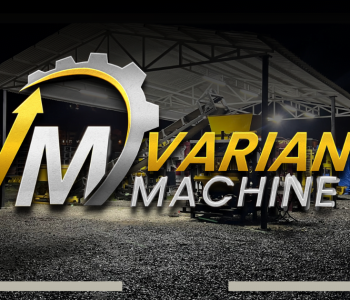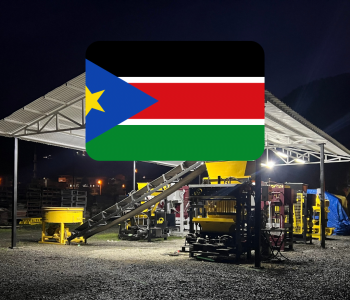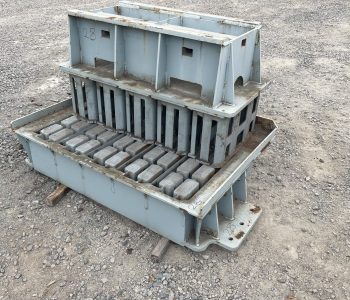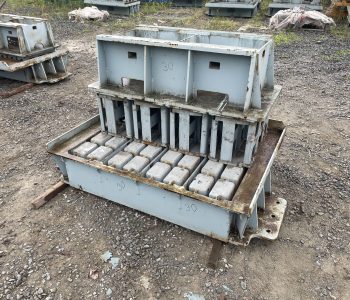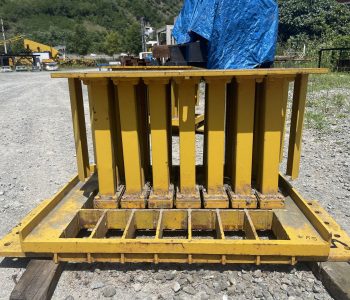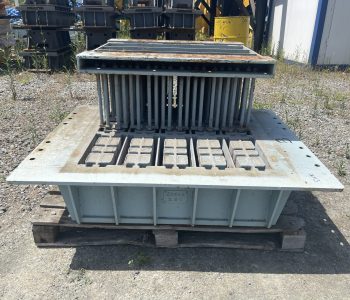Construction Machinery Prices in Windhoek
City History, Current Status, and Future Plans
Windhoek, the capital and largest city of Namibia, has a fascinating history and a promising future. Originally established as a trading post in the 19th century, Windhoek has evolved significantly through colonial times and independence to become the economic and administrative hub of Namibia. Today, Windhoek is undergoing a transformation, marked by its mix of historical heritage and modern development goals. The city is actively working on expanding its urban landscape, modernizing infrastructure, improving transportation networks, and advancing sustainable development initiatives.
Most Common Construction Machinery in Windhoek
The construction sector is crucial to Windhoek’s growth. The most commonly used construction machinery includes:
- Concrete Block Machines: Vital for producing various types of concrete blocks for construction projects.
- Concrete Paver Machines: Employed for laying paving stones on roads, sidewalks, and other surfaces.
- Concrete Batching Plants: Facilities that mix concrete components to ensure consistent and high-quality output.
- Crushers: Equipment that breaks down large rocks into aggregates for construction, available in both stationary and mobile versions.
Concrete Block Machines in Windhoek
Concrete block machines are essential to Windhoek’s construction industry. They produce a range of blocks, including hollow, solid, and paver types. These machines use steel molds to shape the blocks and come in various sizes and capacities tailored to specific project needs.
Description of Machines, Equipment, and Materials
In Windhoek, concrete block machines are designed for efficiency and precision. They use materials like sand, aggregate, and cement to create durable, high-quality blocks. Steel molds ensure the blocks maintain their shape and strength, while modern machines may feature automation to enhance the production process.
Concrete Block Machine Prices in Windhoek
The price of concrete block machines in Windhoek varies based on several factors, including the machine’s capacity, technology, and brand. Key aspects influencing prices include the machine’s complexity, production efficiency, and any additional features or automation. Understanding these elements is crucial for making well-informed purchasing decisions.
Concrete Batching Plants in Windhoek
Concrete batching plants are crucial for producing large quantities of concrete with consistent quality. These plants mix ingredients such as cement, sand, aggregate, and water in precise proportions. There are two main types of batching plants used in Windhoek:
- Mobile Concrete Batching Plants: Portable units that can be moved between construction sites, ideal for projects needing mobility and flexibility.
- Stationary Concrete Batching Plants: Fixed installations with high production capacity, suited for large-scale projects.
Difference Between Mobile and Stationary Concrete Batching Plants
Mobile batching plants are appreciated for their flexibility and transportability, making them ideal for projects with varying locations. On the other hand, stationary plants offer higher production capacity and efficiency, making them better suited for extensive, long-term projects.
Concrete Batching Plant Prices in Windhoek
Similar to concrete block machines, the prices of concrete batching plants in Windhoek are influenced by factors such as capacity, technology, and additional features. Understanding these factors can help in selecting the most suitable plant for a project, as they significantly impact overall costs.
Crushers in Windhoek
Crushers are used to reduce large rocks into smaller, manageable sizes for construction purposes. They are essential for producing aggregates used in various construction applications.
- Mobile Crushers: Versatile and portable, these units can be easily relocated between different sites, making them ideal for projects requiring flexibility and on-site processing.
- Stationary Crushers: Fixed installations set up in a specific location, suitable for large-scale operations requiring high capacity and continuous processing.
Difference Between Stationary and Mobile Crushers
The main difference between stationary and mobile crushers lies in their mobility and application. Mobile crushers offer flexibility and can be relocated as needed, making them suitable for projects with changing locations. In contrast, stationary crushers are designed for high-capacity, continuous processing, making them better suited for large-scale operations where the equipment remains in one place.
Crusher Machine Types
- Cone Crushers: Used for secondary and tertiary crushing, cone crushers offer a high reduction ratio and are suitable for hard and abrasive materials.
- Jaw Crushers: These primary crushers handle large pieces of material and are known for their durability and ability to manage tough materials.
- Impact Crushers: Utilize impact to break down materials, ideal for producing high-quality aggregates and finer materials.
- Vertical Shaft Impact Crushers (VSI): Known for producing fine aggregates and sand, VSI crushers use a high-speed rotor to impact materials.
Crusher Prices in Windhoek
The prices of crushers in Windhoek are influenced by factors such as type, capacity, and technological features. Stationary crushers, with their fixed nature and higher capacity, may differ in pricing from mobile crushers, which offer greater flexibility. Factors like efficiency, durability, and additional features play a significant role in determining the overall cost.
Conclusion
Windhoek, with its rich history and dynamic development, plays a pivotal role in Namibia’s construction industry. The machinery used in construction, including concrete block machines, batching plants, and crushers, supports the city’s growth. Understanding the factors affecting the prices of these machines and equipment is essential for stakeholders to make informed decisions and contribute to Windhoek’s ongoing modernization and expansion.
